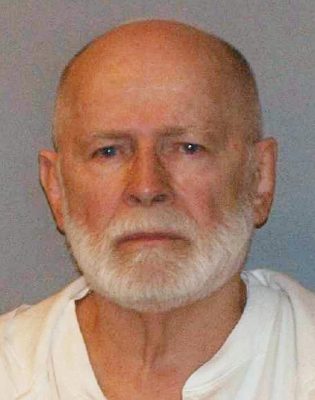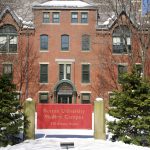
The U.S. Supreme Court denied the appeal request of James “Whitey” Bulger, a Boston gangster known for his criminal cases in the 1970s to the 1990s, according to a court document released Monday.
The Supreme Court left no comment for Bulger’s appeal denial for an order of certiorari, which is a request for a higher court to review the decision of a lower court. Bulger’s was filed on June 2.
Bulger, a former FBI informant, was convicted to two life sentences in 2013 for 11 murders and cases of racketeering, extortion and money laundering, The Daily Free Press reported Aug. 12, 2013.
Dick Lehr, a Boston University journalism professor and the author of “Black Mass: Whitey Bulger, the FBI, and a Devil’s Deal,” said Bulger’s trial was fair and reasonable.
“The evidence was pretty compelling,” Lehr said, “and obviously persuaded the jury at the time that he committed the murders that they convicted him of.”
Lehr said Bulger should have been allowed to appeal to court, as it would shed light upon Bulger’s crimes, such as looking into his “wild claim that a prosecutor years ago had given him permission to kill people.”
“Under oath, to hear him testify would have been important — and for the public understanding of the corruption and wrongdoing,” Lehr said. “He then would have been subject to cross examination, and then we would have even heard and learned more.”
Police, at times, overlook nonviolent crimes to let an FBI informant build rapport with the criminal group, Lehr said. But although Bulger had been an informant, he was not under conditions that granted him full legal immunity.
“There’s no evidence of a bona fide deal here — an agent who is corrupt saying, ‘I’ll watch out for you and protect you,’” Lehr said. “I don’t think anyone has ever heard of the kind of situation that Whitey claimed he had.”
Nancy Gertner, a former federal judge, wrote in an email that the refusal of Bulger’s request is an ordinary instance, as the court only hears a small portion of appeals filed.
“It typically takes cases in which there is a conflict in the circuit courts of appeals or where there is an issue of first impression, i.e. a novel issue,” Gertner, a Harvard University law professor, wrote. “So there was nothing surprising about this.”
Several Boston residents said Bulger deserves the conviction he received. The law, they said, should be enforced more strictly in some Boston neighborhoods, where crime scenes are prevalent.
Francis Castillo, 60, of East Boston, said he does not expect the federal government to release Bulger from jail.
“Well, the crime in Boston is really bad, especially in the poverty areas like Dorchester, Jamaica Plain, Roxbury, East Boston,” he said. “It doesn’t matter what age he is — you know, for all the things he did in the past. I wasn’t here, but I read all the things about it. He was really bad.”
Jennifer Collins, 42, of Fenway, said Bulger’s prison time is a suitable sanction for his crimes.
“Did he think he was going to get it? Probably not,” she said. “He got away with it all those years. He should be happy he got away with it that long. It’s a horrible thing to say, but he had a lot of freedom already.”
Cassandra Steed, 35, of Brighton, said although she has observed less crime since she moved to Boston, she recognized that crime is still a major issue in the city.
“Old school Boston — I mean, there’s still a lot of that around, but it’s not as open,” she said. “For everything that he did, [Bulger belongs in jail].”















There is no way that Bulger’s trial can be deemed fair in view of the fact that he was not allowed to testify to the single most important question — indeed, the ONLY question — in the case, that is, whether Bulger was given permission and immunity by a high Dept of Justice Official, Jeremiah O’Sullivan, to commit any crime he wanted, as long as he continued to feed information to O’Sullivan and also let O’Sullivan know of any plots to kill O’Sullivan. The issue in the case should have been whether Bulger reasonably believed O’Sullivan.